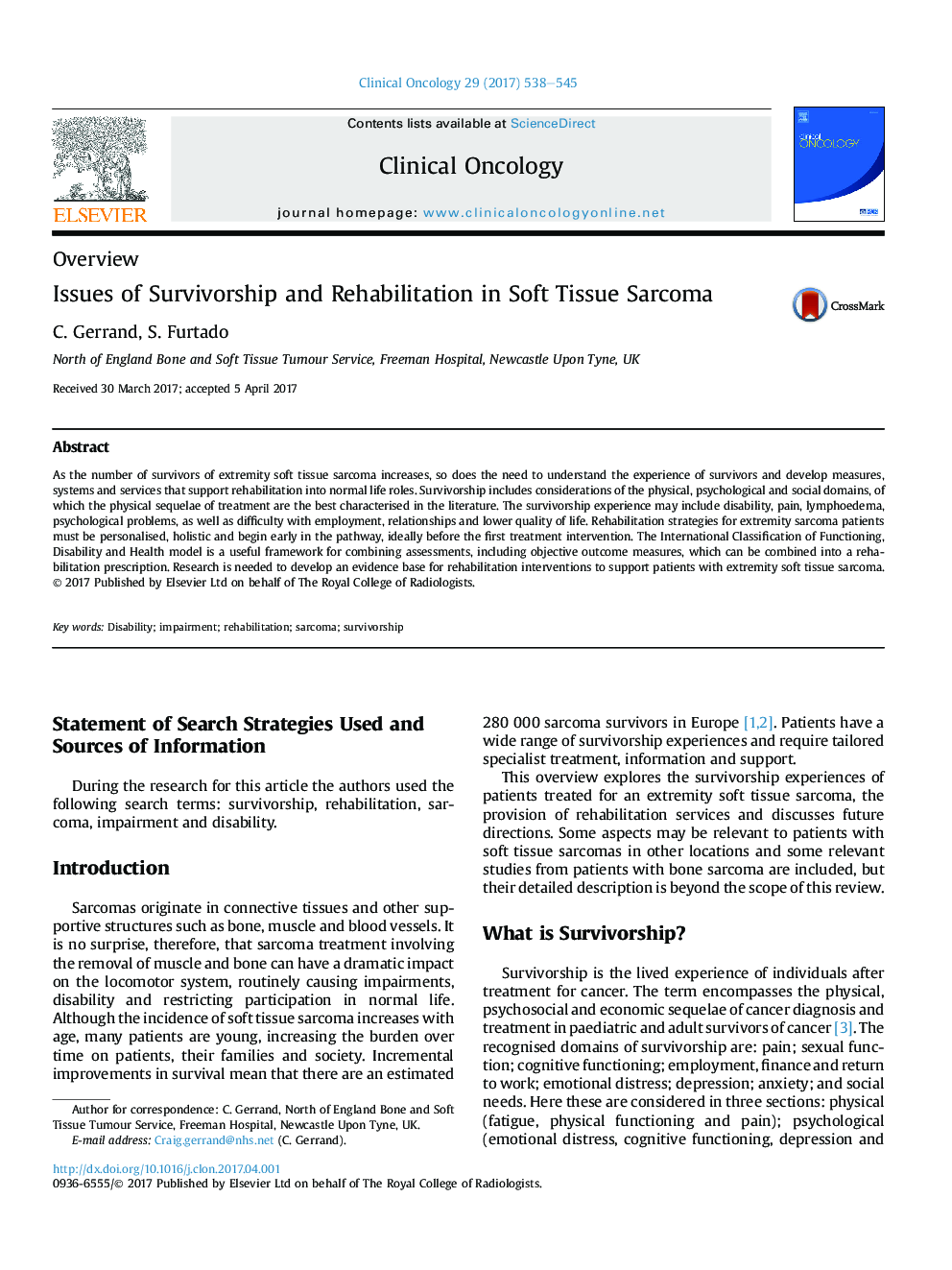| Article ID | Journal | Published Year | Pages | File Type |
|---|---|---|---|---|
| 5697771 | Clinical Oncology | 2017 | 8 Pages |
As the number of survivors of extremity soft tissue sarcoma increases, so does the need to understand the experience of survivors and develop measures, systems and services that support rehabilitation into normal life roles. Survivorship includes considerations of the physical, psychological and social domains, of which the physical sequelae of treatment are the best characterised in the literature. The survivorship experience may include disability, pain, lymphoedema, psychological problems, as well as difficulty with employment, relationships and lower quality of life. Rehabilitation strategies for extremity sarcoma patients must be personalised, holistic and begin early in the pathway, ideally before the first treatment intervention. The International Classification of Functioning, Disability and Health model is a useful framework for combining assessments, including objective outcome measures, which can be combined into a rehabilitation prescription. Research is needed to develop an evidence base for rehabilitation interventions to support patients with extremity soft tissue sarcoma.
